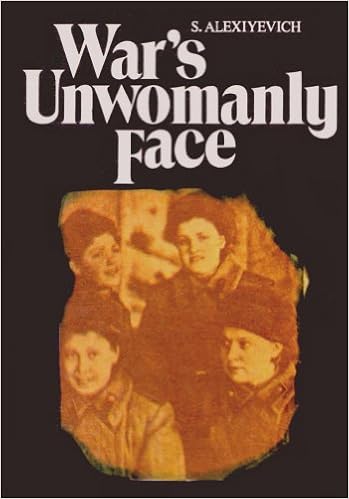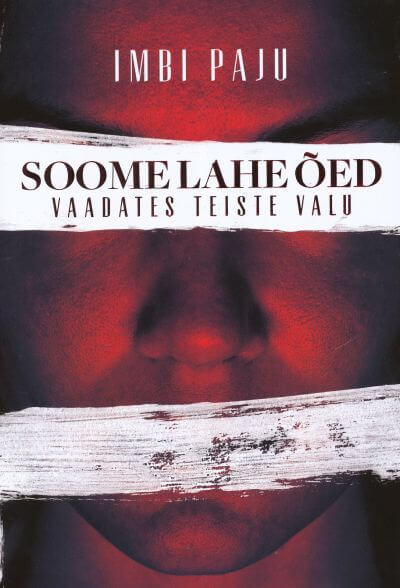Imbi Paju is an Estonian author, historian and filmmaker whose work examines the traumas of totalitarianism. Her book and film “Sisters Across The Gulf of Finland: Watching The Pain of Others” looks at how Estonian, Finnish and other Scandinavian women around the Baltic Sea region, worked together to prevent the onset of crisis and war through their own unique actions. Her books have been translated into several languages and her book “Memories Denied” is considered a landmark work on Soviet repression in Estonia.
In this essay, written originally for Estonian cultural journal, Sirp, Imbi Paju looks at 2015 Noble Prize in Literature laureate Svetlana Alexievich’s work on the wartime trauma of Soviet women.
Last year the Nobel Prize in Literature, which was awarded to Belarusian author, Svetlana Alexievich, reminded us that writing is something more than just a well thought out story. It has the capability of bridging non-fiction and fiction: to create a relationship where people are presented as they are, with their virtues as well as their faults. And where simple phenomena, like the scent of a flower, clean spring water or the help of a traveling wanderer can dramatically affect their fate whether in the literary context of a dark and even event or the coming of a miracle.
This is what Alexievich’s celebrated book “The War’s Unwomanly Face” does. It’s a depressing and tragic story of Soviet women who enlisted in the Red Army during WW II. They were not forced to go to war, but rather many had to practically force their way into the army. Girls ranging in age from fourteen to twenty were ready to fight and die. About one million women fought in the Soviet Army, leaving behind their homes and their parents. In place of dresses these women put on men’s uniforms, rifle in hand and among them, snipers, tank drivers, foot soldiers, machine gunners, pilots, etc.

They left behind them concerned parents and family. No one knew how long the war would drag on. At the same time Stalin’s reign of terror continued. One could never be sure about what one could be blamed for: “Together with father they wouldn’t allow me, but I only had one thought: “Go to the Front. Go to the Front.”All of those posters that are today on display at the museum: “Mother, Your Country is Calling You.” “What Have You Done for the Front Line of Battle? Those Soviet war posters always left a strong impression on me. They were always forced on us.
And what of the songs about the war? “Now cheer up land without borders, and make a dash to the duel …” as Jevgenia Sergejevna Sapronova, who was a sergeant and airplane mechanic, recounts in her recollections to the writer. For the mythological Soviet heroes from the Second World War or as the Soviets called it, The Great War of the Fatherland and The Holy War, there was no recognition of loss, mourning and fear. Death was just an end point on a Soviet created yardstick of life.
The way that you’ve written about the war is incorrect said a censor to Alexievich. According to the state, one should never make teary stories about history nor should a person ever be viewed as a victim in history.
“That is wrong!” said the state censors. “Such treatment of this history slanders our soldiers who freed half of Europe. We do not need such little personal histories, we need a grand history. A history of conquest. Your history does not embrace our heroes or our big ideas. Marxist and Leninist ideas.” Aleksijevitch has chosen to look at the other side of the Soviet narrative of the war.
”Everything that we know about the war, was written from a male perspective and voice. We all impose a mental masculine appearance and a masculine role model in war; which are all encapsulated by a man’s words. But women remain silent. No one other than me has ever asked my grandmother or my mother any questions.” she writes.
How is it that during the war these women could fight for so long for the regime, which simply treated them as cannon fodder? Alexievich has searched for women who went to the front, to investigate how they really felt, how their lives were interrupted and what their lives were like during and after the war. The writer investigates the so-called Soviet “holy war” that is connected with its World War II victory, and looks deeper, behind the narrative of Soviet heroes and reaches into the souls of the women who were at the font. She begins to correspond with these women. In the beginning she talks to them about courage. Just small talk, until she arrives at a moment when her subject is able to distance herself from the prescribed ideological norm of the mythical holiness of the war, and finally connects with her true experiences. Her story continues to grow from its opening passages. “Then she is no longer, for me, a mute proletariat of history. Her soul tears her open. What then is my conflict with power? I have understood that a big ideas requires small people – a big person isn’t necissary . But I am looking for exactly that person. I’m looking for a small, big person. That person has been knocked down, minimized stomped on and hurt. She has journeyed through Stalin’s camps and betrayals and has still won. It’s an amazing wonder.”
The young men and women who fought in the Second World War were born in 1917 during the time of the Russian Revolution or after the arrival of the Bolshevik coup. The spirit of the tsarist-era generation was destroyed and many intellectuals, people of culture, and gentry escaped to the West. (They also came to Estonia but were arrested in 1940 and deported to the Gulag.) The loss of a very large army of writers and journalists caused Russia to fall behind culturally. The doors to schools and universities were wide open to indoctrinate the new generation of the revolution, Communist state ideology.
Propaganda was forced its way into homes, schools and into the Soviet collectives. Old tsarist-era libraries were destroyed and history was rewritten. One particular story involved Lenin’s wife, Nadezda Krupsakaya. Embedded in the school curriculum was Communist ideology and the militaristic-patriotic teachings which made very clear what a women’s wartime role should be. Stalin told his people that a single man’s contribution on the battlefield are insignificant, that it was the total mass of the people that mattered. Because of this, women fulfill the role of warrior while giving birth to future Soviets at the same time. And so those girls went off when duty called them, rifle in hand! Those who were captured and imprisoned by the enemy were considered traitors. Women believed that after the war everything would change and that Stalin trusted and believed in his own people. “The war hadn’t yet ended, but the echelons were already rolling towards Magadan. Echelons full of combatants who had won the war … They arrested those who had been imprisoned and managed to stay alive in German prisoner of war camps, those been deported to work in Germany – and anyone else who had seen Europe and could describe what life without communism looked like”.
People were spiritually broken before the war broke out. Brainwashing was offered as a kind of consolation and was engineered to promote happiness. Even if life was miserable, one could at least die for one’s country. For the young Russian women, a life as a soldier was not a choice: they had no awareness of what their lives meant or the history they were living in. The individual person, their worries, sufferings, what they had lived through and the after effects of real trauma weren’t acknowledged int the Soviet totalitarian system nor were they allowed. Translations of Sigmund Freud’s work appeared in Tsarist Russia, which would have helped people examine their inner selves, but the Bolsheviks (as later on in Hitler’s Germany) destroyed a much of Freud’s work.
Maxim Gorky’s novel Mother (1906) had a large influence on the new state religion where one family’s life with an alcoholic father, under the reign of terror, is depicted. Novels were often used to create a model female hero character, who became the role model for thousands of soviet women – but any mention of family violence was hidden and silenced. The female hero was required to fulfill the state’s ideal of sacrifice. Through the novel “Mother” we can see how ideology uses the Russian woman as a victim.
Self-sacrifice is always connected with the ego and narcissism. In her work, Alexievich examines the lack of empathy felt by mothers towards their daughters. “I returned to my village with two state awards and medals. I was back for three days, and on the fourth day, early in the morning, when everyone else was sleeping, my mother woke me up from bed and said: “Daughter, I have prepared a bucket for you. Go away. Go away. Your two younger sisters are still growing up. Who will take them for a wife? Everyone knows that you were together with men four years.”
For the Women who went to war just about all of them experienced the same psychological loneliness. They began to live within a predefined role just to bury their pain. Faking it helps to protect a broken identity. ““How did our country receive us?” I can’t talk about it without crying … Forty years have passed but right up until now my cheeks are red. The men are quiet, but the women … they yelled at us: “Yes we know what you did! You tempted the young ones … our men..” Those women faces unspeakable insults … the Russian language is rich with such words”
“The War’s Unwomanly Face” was first published in 1985 with two million copies printed. But ultimately and without any fanfare, Alexievich’s was only published when the Soviet Union crumbled, at a time when studying history was no longer considered a crime. That is about the same period of time it takes people to recover from their traumas – a half a century or even more. The reverberations of totalitarian history and the conditions it has created has meant that the door to understanding it remains partially closed. As such, Aleksjivitch is no hero in her country. She is regarded simply as a woman who is watering down history.
What really motivates, Aleksjevitch’s writing is a determination to help ensure that horrors of war never repeat. Sadly, we can no longer be sure of that either.
IMBI PAJU’S “SISTERS ACROSS THE GULF OF FINLAND” (with subtitles)
IMBI PAJU ON HER NOVEL “SISTERS ACROSS THE GULF OF FINLAND”
My psychological-hictorical novel, Sisters Across the Gulf of Finland, is a story about how Estonian, Finnish and other European women around the Baltic Sea networked together to prevent, with their own actions, the onset of crisis and war.

My work describes the choices of European women and sisterhood before the war, as well as the verbal and psychological conflict that the propaganda propelling from the prejudices of the Soviet Union has left for Europe as a legacy. When the war broke out between the Soviet Union and Nazi Germany, the occupied areas succumbed to terror which destroyed the women of other Baltic countries and Poland. After the Second World War, the Estonian members of Naiskodukaitse (Women’s voluntary defence organisation) were transported to Gulag and the Finnish Lotta Svärd organisation was declared fascist and banned on orders from the Soviet Union. And an important part of the history of European women fell into oblivion.
In my book I want to show the pains left to us as an inheritance by the past. I examine the way in which we look at each other, ourselves and our history. The stories of women in my work refresh our memories and call to mind the pages of our story hidden in the silence of history.
However, my book is not solely a story about the past, but it is also a story about the necessity of dealing with the past, with the geopolitics of emotion. History is a collection of lost moments which intertwine in the subconscious, when the events of different eras are being looked at and reminisced from a different time, the present. With the film and stories one can examine lived moments and find parallels with present day. One can finally feel the joy, but also the sadness, fear and loneliness.
This type of courtship with the past is not always pleasant. It demands sensitive and critical self-analysis. But the perspective is the same and present everywhere in the world, where people have been subjected to the dark side of the human mind: threats, humiliation, and torture.
I have intentionally written this work to be therapeutic also, so that it can help restore people’s moral memory. This is essential, so that political and economic crises never again destroy our world, our country or ourselves as people.
Imbi Paju’s article was translated by Vivian Napp and edited by UpNorth.
Source: UpNorth Magazine
